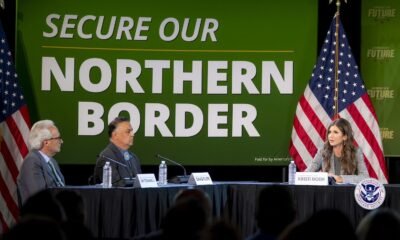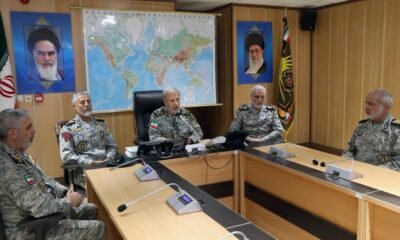cct-tracking
Can Pope Leo Hold onto U.S. Citizenship as a Foreign Head of State?

Pope Leo XIV’s recent election marks a historic moment as he becomes the first American-born leader of the Catholic Church. This achievement places him in a unique, legally complex position as a U.S. citizen and foreign head of state.
Born Robert Prevost in Chicago in 1955, Pope Leo has held dual citizenship with the United States and Peru since 2015, after serving as a missionary and bishop in South America.
As the Pope, he oversees both the Holy See and Vatican City, recognized as the smallest nation globally, measuring just 0.17 square miles.
The question arises: can a sitting pope retain U.S. citizenship while leading a foreign government? This situation brings various legal questions to the forefront.
Americans employed by foreign governments do not automatically lose their U.S. citizenship. However, the State Department monitors cases involving individuals in high-ranking foreign positions, including heads of state.
According to legal experts, this dual role raises complications regarding the legal immunity afforded to foreign leaders, potentially conflicting with the constitutional principle that no one is above U.S. law. A 1980 Supreme Court ruling affirms that citizenship cannot be revoked without explicit renunciation.
Professor Peter Spiro indicates that it’s unlikely the U.S. would strip Pope Leo of his citizenship, especially since his actions do not suggest an intent to abandon it.
Peruvian law places no restrictions on Leo maintaining his American citizenship. He was granted Peruvian nationality just before being appointed bishop, fulfilling residency and civic requirements.
Emerging from this election is speculation about the citizenship statuses of previous popes. While the Vatican does not disclose this information, it is known that Pope Francis renewed his Argentinian passport after his election.
Experts, including Syracuse University history professor Margaret Susan Thompson, suggest that Pope Leo’s initial speeches in Italian and Spanish were intentional, signaling his role beyond a purely American identity.
Historical parallels exist, such as U.S.-born leaders who renounced their citizenship upon taking office in foreign nations. Cases like former British Prime Minister Boris Johnson demonstrate this complex landscape of citizenship as it relates to global leadership.
This continuing dialogue about Pope Leo XIV’s citizenship underlines not only the intricacies of international law but also the evolving nature of identity within the global context of leadership and governance.


















